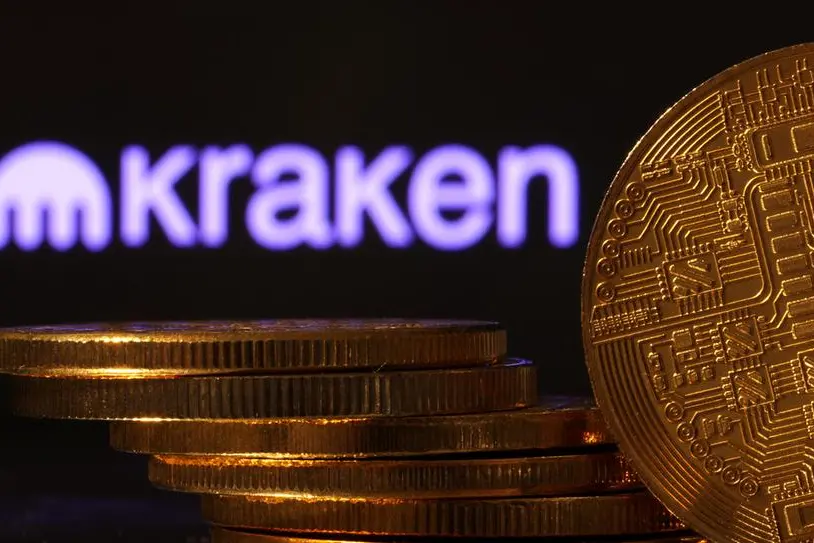PHOTO
Crypto companies offering their customers eye-popping yields through so-called "staking" products are earning the ire of the U.S. securities regulator who says such services should be registered.
Crypto exchange Kraken on Feb. 9 agreed to shutter its staking service for U.S. customers and pay $30 million in penalties, as part of a settlement with the regulator, and investors are worried a broader ban on the practice could follow.
Here's what you need to know about staking:
What is staking?
Staking is a process in which cryptocurrency holders volunteer to take part in validating transactions on the blockchain – in other words, checking that the ledger all adds up.
The checking is not done by individuals, but by computers in the blockchain network, often via third-party staking services. In return, validators, who cannot use their cryptocurrencies involved in the validating process for a period of time, receive a share of the transaction fees or newly created cryptocurrencies. That reward is then passed on to customers at centralized exchanges who agree to stake their assets.
From a customer’s perspective, it’s a way to receive returns on cryptocurrencies, by agreeing for them to be “put to work,” or “locked up,” for a certain period of time. Staking is only possible on “proof-of-stake” blockchains, such as ethereum.
The question for regulators is whether this reward scheme resembles an investment contract and should adhere to the accompanying rules.
What firms are engaged in it?
Nearly all of the major crypto exchanges offer staking services to their customers for a variety of tokens, including Coinbase, Binance, Crypto.com, Gemini, Huobi and OKX. Those firms offer clients anywhere from a 2% annual percentage yield to as high as 40% APY on certain tokens. The most popular tokens that can be staked include ethereum, Solana, Polygon and Avalanche.
While those centralized exchanges provide staking as a service to their clients, cryptocurrency owners can also stake their tokens on decentralized exchanges, like Uniswap, although doing so requires more technical know-how.
It's not just crypto firms either. British digital banking app Revolut recently started allowing customers in the UK and Europe to stake cryptocurrencies they hold on the platform.
Why are regulators unhappy about it?
The SEC has said most staking providers fail to provide customers proper disclosures about how their cryptocurrency will be used and should register their staking services with the agency. In its settlement with the SEC on Feb. 9, Kraken neither admitted nor denied the SEC's claim that its staking service should have been registered.
SEC Chair Gary Gensler said the action should put other crypto exchanges that offer similar services to U.S. users on notice, and that those platforms should come into compliance with securities laws.
While regulators have expressed concerns about crypto products which lure in customers with the promise of high yields, the practice of staking has not been singled out for specific regulatory attention in countries besides the United States.
Kraken said it would continue to offer staking to customers based outside of the United States.
What's next?
Although Gensler said the SEC's settlement with Kraken should be a warning sign to the rest of the cryptocurrency industry, it's not immediately clear that other crypto exchanges that offer staking will register those services with the SEC.
In a statement, Coinbase said its staking program was not affected by Kraken's settlement with the SEC because its own service is "fundamentally different" than Kraken's.
The Blockchain Association, an industry trade group that represents a number of prominent crypto firms in the United States, noted that the Kraken settlement isn't law, but should serve as a push for Congress to pass legislation that governs cryptocurrency.
(Reporting by Hannah Lang in Washington and Elizabeth Howcroft in London; Editing by Andrea Ricci)





















